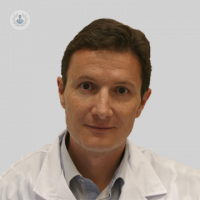fecal incontinence: diagnosis and treatment
Written by:Fecal incontinence is defined as inability to control movements solid, liquid as well as gas. The incidence of this disease is high, as it can affect up to one in four adults, especially women. At older ages, the incidence can be increased to 50%.
 Despite this high incidence, fecal incontinence is a clearly undervalued problem because there is great ignorance about possible treatments, which, coupled with the stigma and shame that traditionally have accompanied this condition, does not seek medical specialist Proctology with appropriate frequency.
Despite this high incidence, fecal incontinence is a clearly undervalued problem because there is great ignorance about possible treatments, which, coupled with the stigma and shame that traditionally have accompanied this condition, does not seek medical specialist Proctology with appropriate frequency.
Causes of fecal incontinence
The main cause of fecal incontinence is obstetric trauma, ie, the injuries in the perineum during childbirth, although there are other causes, such as prior surgery (hemorrhoids, fissures, perianal fistulas, etc.) or trauma.
In addition to the direct mechanism of injury, there are other diseases such as diabetes, circulatory disorders and diseases such as multiple sclerosis, which can also cause onset of fecal incontinence.
Diagnosis of faecal incontinence
It is crucial to make a correct diagnosis of the problem and for this it is very important to make a good medical history, looking for symptoms and causes, and make a proper physical examination.
Among the tests most prominent diagnosis, there endoanal ultrasound 360, which involves inserting a terminal of ultrasound with a rotary transducer 360, with which you can visualize the anal straight-sphincter apparatus and the channel for possible alterations or tears the internal anal sphincter and external anal sphincter, and the presence of perianal fistulas or abscesses. This technique is a simple test that can be performed on an outpatient basis in the query itself, since it is generally very well tolerated by patients.
Depending on the possible cause of incontinence, you may perform other tests, such as manometry anorectal or pelvic dynamic MRI.
Treatment of fecal incontinence
There are several treatment modalities for this disorder because, as discussed above, the cause may be multifactorial. And sometimes they can be performed simultaneously several treatments on the same patient, or progressively.
First, hygiene and dietary measures should be put in place, such as the use of anti-diarrheal or increasing fiber intake. However, if this does not work, there are other possibilities:
- Biofeedback: get re-educate the sphincter apparatus to achieve an improvement in heart function.- Sphincteroplasty: is a surgery that involves the external anal sphincter repair.- Neuromodulation posterior tibial nerve: is a less aggressive therapy is carried out by electrical stimulation of the posterior tibial nerve at the ankle, during several sessions of about 30 minutes, and that can be performed in the same query form ambulatory.- Radiofrequency in the anal canal: you need done with anesthesia or sedation and supplemented by other therapies such as nerve stimulation of sacral roots.- Bulky Bulking agents or injection: it consists of applying substances to increase sphincter and is used in case the internal anal sphincter have a defect or malfunction. They can be temporary or permanent.
Therefore, it is essential make a proper diagnosis of the problem and to find the therapy or ideal combination for each patient, designing a specific treatment for each situation therapies.



